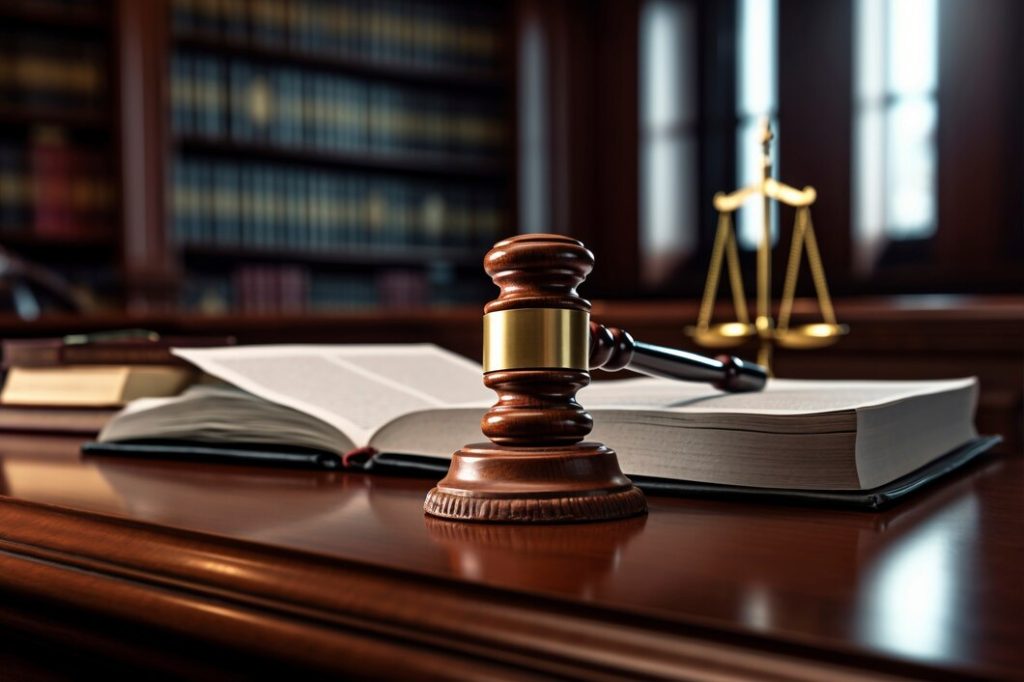How To Choose A Personal Injury Lawyer You Can Rely On

Choosing the right personal injury lawyer is a crucial step in ensuring that your case is handled with the expertise and care it deserves.
Navigating the aftermath of an accident can be overwhelming, and having a reliable attorney can make a significant difference in the outcome of your case.
This article aims to guide you through the process of selecting a personal injury lawyer who not only has the necessary skills and experience but also the commitment to prioritize your best interests.
Understanding Experience And Specialization

Experience should be at the forefront of your considerations when looking for a personal injury lawyer. An experienced lawyer will have a track record that speaks to their capability in handling cases similar to yours.
For instance, abogado Richard Harris, a seasoned attorney, has built a reputation for his expertise in personal injury law, which is evident in his handling of various complex cases. It’s important to choose a lawyer who specializes in personal injury law, as this area of practice requires specific skills and knowledge.
Additionally, consider the lawyer’s success rate in similar cases. A history of successful outcomes indicates a lawyer’s ability to manage and win personal injury cases effectively. This information is usually available on the lawyer’s website or can be requested during your initial consultation.
Evaluating Communication Skills
Effective communication is highly crucial in any legal relationship. Your legal expert should be accessible with ease and willing to explain legal concepts in a way that you can understand. During your initial meeting, take note of how the lawyer communicates.
Do they listen attentively to your concerns? Are they clear and straightforward in their explanations? A lawyer who is a good communicator will keep you informed throughout the legal process and make sure that you are comfortable with each step taken in your case.
Furthermore, responsiveness is crucial. Your lawyer should be prompt in responding to your calls or emails. This reflects their commitment to your case and ensures that you are not left in the dark regarding any developments.
Assessing Resources And Support
A well-resourced legal firm can significantly impact the handling of your case. Investigate whether the lawyer has a skilled team to support them. This includes paralegals, administrative staff, and possibly other attorneys who can contribute their expertise. Having a strong team means your case will be handled more efficiently and thoroughly.
Additionally, consider the firm’s resources in terms of investigative capabilities. A firm that has access to top-notch investigators and expert witnesses can strengthen your case by uncovering crucial evidence and providing authoritative testimonies.
Understanding Fees And Payment Structure
Before choosing a personal injury lawyer, it’s important to have a clear understanding of their fee structure. Most personal injury lawyers work based on contingency fees. It denotes you pay them only if you win the court case.
Make sure to discuss what percentage of the settlement they will take as their fee. Also, inquire about any additional costs that you might be responsible for, such as filing fees or charges for expert witnesses.
It’s also wise to compare the fee structures of different lawyers. While you shouldn’t base your decision solely on cost, choosing a lawyer with reasonable and transparent fees is important. Be wary of any hidden costs or unclear payment terms.
Reputation

It is one of the most important assets of a legal practitioner. If you are hiring them, you must get information on their reputation. It is one of the important parameters in selecting the expert.
There is no doubt on the fact that reputation is one of the key elements associated with the selection of a professional. However, you must look at the developments, and they go for hiring professionals. Remember, a lawyer with a steady track record in winning court cases can help you out.
Local Knowledge
Knowledge Of the local laws. Another key aspect of hiring the right lawyer is checking their know-how at the local knowledge. When your problem relates closely to the local laws, you must ensure that you hire an expert who is good with the local laws.
You have to follow these parameters so that it can help you address your local needs. Therefore, selecting the right lawyer with the right expertise becomes key to hiring the legal team.
Comfort And Trust
One of the benefits of hiring a personal injury lawyer is the comfort and trust element. The personal injury cases take a heavy toll on your body. At the same time, they are psychologically draining. Therefore, you need to select a lawyer who will offer you the trust and confidence right from the beginning.
While the case continues, you need to show your personal details. Hence, you must shoulder your trust in someone who can keep you comfortable. The most successful lawyers are gifted with the best client relations. It is essential from the purpose of understand your requirements.
Checking References And Reviews

Lastly, don’t underestimate the value of references and reviews. Ask the lawyer for references from past clients. Speaking to these clients can provide insight into the lawyer’s working style and effectiveness.
Online reviews and ratings can also be a useful resource. They can give you a sense of the lawyer’s reputation in the community and their success rate with previous clients.
However, take online reviews with a grain of salt. Not all reviews are genuine, and some may not provide a balanced view of the lawyer’s capabilities. Use them as one of several tools in your decision-making process.
Conclusion: Making An Informed Choice
Selecting the right personal injury lawyer is a decision that should not be taken lightly. It’s about finding a balance between expertise, communication, resources, cost, and reputation.
Remember, the right lawyer will bring legal acumen to your case and a sense of security and confidence. By following these guidelines, you can make an informed choice that aligns with your needs and increases the likelihood of a favorable outcome in your personal injury case.
Read Also:













